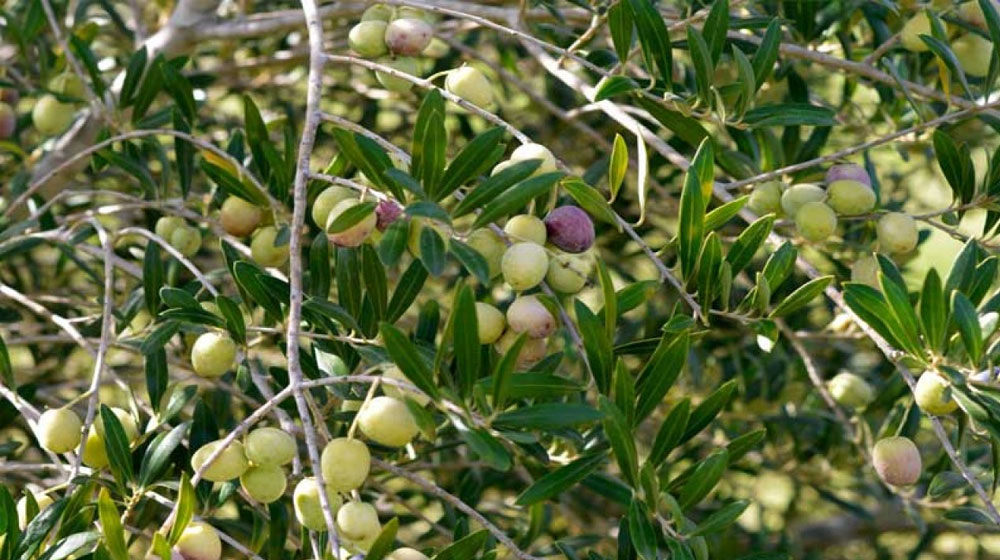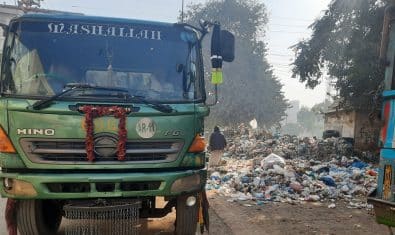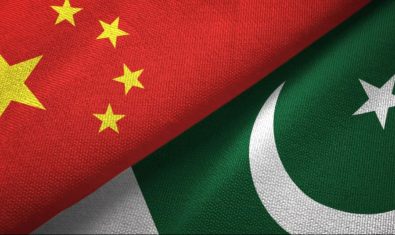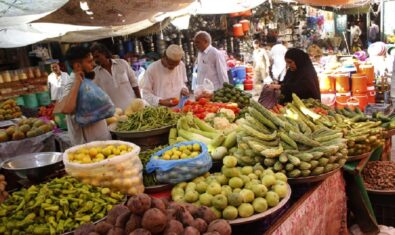Pakistan can become self-sufficient in edible oil within a decade if the immense potential of olive farming and millions of wild olive trees across Pakistan is realized.
If harnessed to its full potential, indigenous olive oil production in the country can help save a staggering $4.5 billion spent annually on importing edible oil and lead to a thriving olive export market.
This was observed during a discussion at the Institute of Policy Studies (IPS), Islamabad, organized to shed light on Pakistan’s expanding potential in olive cultivation.
The discussion, moderated by Naufil Shahrukh, GM Operations, IPS, was addressed by Khalid Rahman, chairman, IPS, Dr. Faiyaz Alam, general secretary of Dua Foundation, Shabbir Soomro, author and journalist, and Dr. Ghufran Saeed, Assistant Professor, Department of Food Science and Technology, University of Karachi.
Dr Faiyaz Alam and Shabbir Soomro have also recently co-authored a book on the history, status, and potential of olive farming in Pakistan.
While introducing the work, Pakistan Main Zaitooon Ki Kashat – Tareekh, Tajurbat, Aur Imkanaat, Soomro highlighted that despite Pakistan having around 85 million wild olive trees, their full potential remains unexplored even by local people due to a lack of awareness and knowledge about the resource.
The book, the culmination of extensive research, interviews, and expertise, addresses this gap in understanding and aims to bridge the awareness deficit that has hindered the exploration of this rich resource. He said that with an emphasis on nationwide awareness, the book endeavors to enlighten readers about the immense possibilities and benefits hidden within Pakistan’s olive trees.
Dr Faiyaz Alam emphasized the transformative impact of arid agriculture.
He deplored the mainstream media’s lack of interest in giving space and time to such issues, as well as the reluctance of governments to acknowledge and reward agricultural scientists and enterprising farmers who have contributed immensely to introducing valuable olive varieties and necessary food processing technologies.
Dr. Faiyaz said that the efforts in the last few years, spanning areas of Sindh, Balochistan, Khyber Pakhtunkhwa, and Punjab, have seen the seeding of 5.6 million new olive trees across 50,000 acres of land. Two million of these plants are already yielding fruit and producing several tons of olive oil for local consumption and export.
He highlighted that around 75 percent of Pakistan’s edible oil is imported, and the $4.5 billion that the country spends on this can be saved through olive cultivation, making Pakistan self-sufficient in edible oil.
“Research for the sake of research leads nowhere,” emphasized Dr Ghufran. He highlighted that the lack of cohesion between academia, industry, and government is a dilemma obstructing the exploitation of agricultural assets like olives.
He stressed that a massive potential of wild olive trees is wasted every year because of the lack of awareness, and initiative at all levels.
In his concluding remarks, Khalid Rahman underscored that harnessing the potential of olive cultivation is not just about agriculture; it is a health and national economic imperative as well. It is time that “Pakistan must redefine its strengths and weaknesses,” he said while stressing the need for comprehensive awareness initiatives based on indigenous assessment of strengths and weaknesses.
In this regard, he highlighted that success stories in olive cultivation should be incorporated into educational curricula, and community institutions like madrassahs should be urged to motivate people with these prospects.
Khalid Rahman underscored the need for an indigenous framework that connects research, local efforts, and societal motivation. He said these efforts would produce not just agricultural growth but a holistic transformation of the national socio-economic fabric.






















Pakistan ‘CAN’ do many things to improve the quality of life of its people. However, we are interested only in talks and seminars, not in actions. With 75% of the country’s economy based on agriculture, a vast cultivable area, and a large population, Pakistan ‘can’ do much but we shall not………
Supported pz
Good to know of the efforts being made to promote olive cultivation. However olive oil is not compatible with our style of cooking, therefore local alternate of imported cooking oils also needs to be focused.
Agreed. Yet it can earn us the foreign exchange to compensate for the other oils. In due time locals will become aware of its health benefits and make some adjustments to our cooking style.
Sorry but don’t agree with you. The massive import bill of olive must be slashed by growing in country. Yes If you produce a plus awareness be given to locals on health benefits.
Very impressive work,regarding to the need of present time. There is a vital role for the fresh Agriculture graduates 🎓 to put their efforts for this sector. ZTBank must provide financial support to the land owner as well as graduates. To carry on such projects.
In this way we can decrease unemployment ratio in agriculture graduates.
Regards
Sahto, ad. Tando jam
And the best part is olive can be grown on arid land and the tree is fruitful for many many years. PTI government had encouraged plantation of olives and Bair trees besides others.
Promotion of olive cultivation including upgradation of wild olive has huge potential not only in making the country self sufficient in valuable olive oil with considerable health benefits, but it will have invaluable environmental and ecological benefits through protection of the nation’s watersheds resulting in sustainable water production and flood control.
How simplistic! Do you at what retail price local olive oil I sold? You think a common Pakistani will switch? And what about ghee? Pakistan consumes ghee majorly which comes from imported palm.
Imported khajoor Sy ghee kaiasy hasil hoya hy sir
Pakistan becoming self sufficient, in any commodity ;will be beneficial for the general public. However not for mafia, who rule and destroy Pakistan.
تکلیف کی ھے 4.5بلین کا زیتون منگوانے کی باھر سے۔۔۔۔ھمیں شرم آنی چاھیئے کہ ھم مقروض قوم صرف چند لوگوں کو فائیدہ پہنچانے اور جلد امیر ھونے کے چکر میں ایسی حرکتیں کرتے ھیں۔۔۔۔
ملکی وسائل بر بھروسہ کرنا چاہیے ۔۔اور زر مبادلہ صرف ملک کی ترقی ،تعلیم ،علاج اور دفاع پر لگانا چاہیے
No doubt that olive oil is rich in medicinal value (even mentioned in Quran) and Olive is high value tree with huge potential of revenue earning through export but it cannot fully replace import of edible oil (used for cooking) as olive oil is not meant for cooking. Other than it is distinctly expensive (Rs 4000 per kg), it’s smoking point is too low and does not serve the purpose of cooking for which we import edible oil.
Efforts of Dr Fayyaz in promoting cultivation of Olives are commendable but its value is linked with conducive environment for export, as there is huge international market
Where can you buy this book from ?